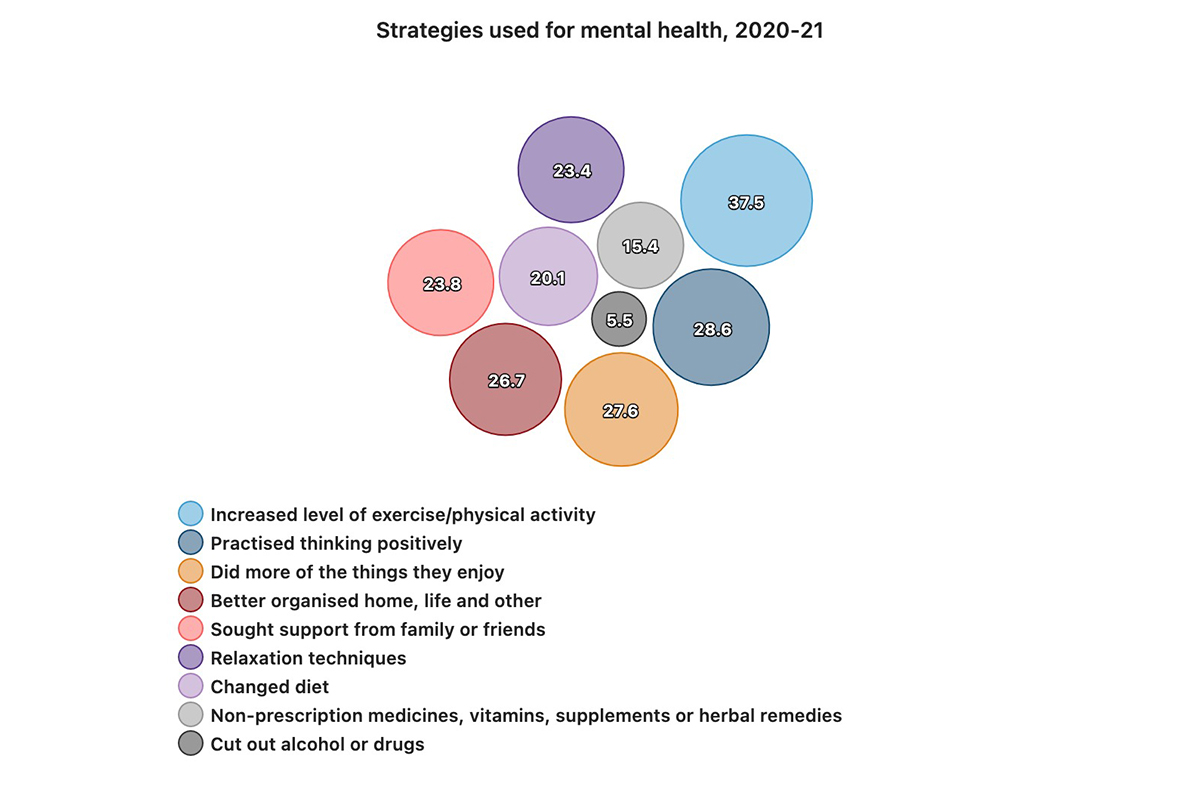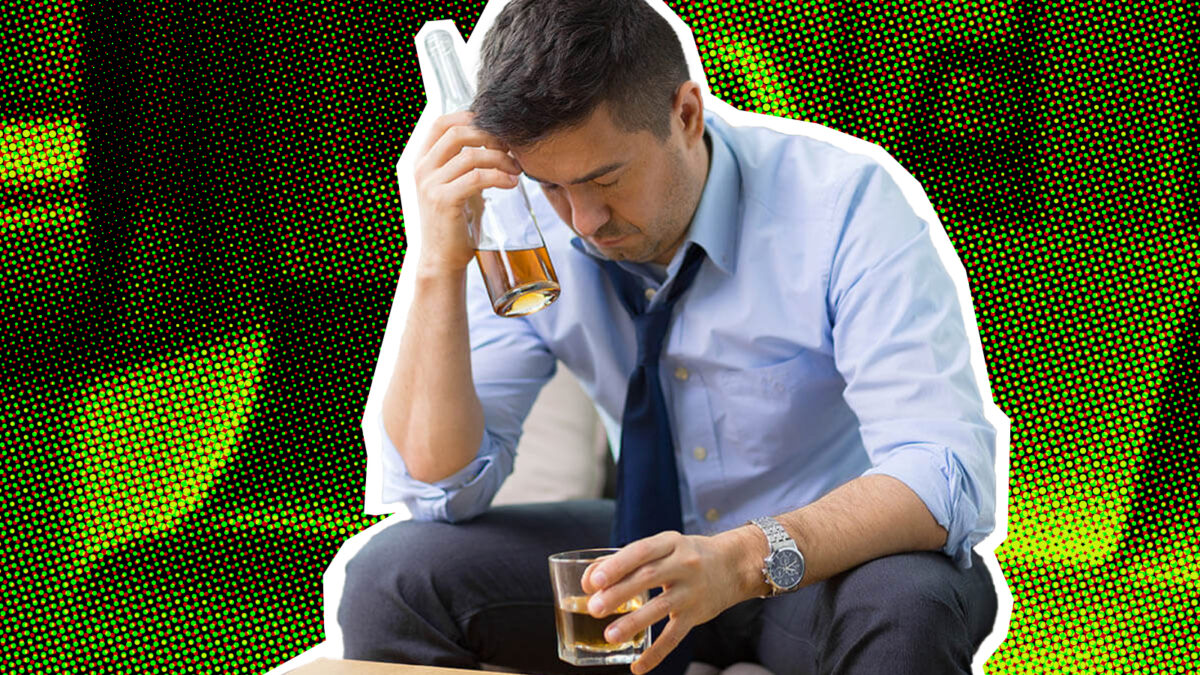According to recent data, not many Australians are willing to forego alcohol and/or drugs to improve their mental health. But it’s actually extremely important for those struggling with mental health issues to cut back their alcohol/drug intake.
It’s common knowledge that alcohol is a depressant and is bad for both mental and physical health.
And according to Headspace, using alcohol to try and manage a mental health difficulty and/or tough times may feel helpful in the short term but ends up making things worse in the long run.
Therefore, it’s shocking that according to the Australian Bureau of Statistics (ABS) 2020-21 National Study of Mental Health and Wellbeing, only 5.5% of Australians suffering from a mental health issue tried to improve and ‘self-manage’ their condition by cutting out alcohol and/or drugs.
That’s despite Australians trying all sorts of other strategies to improve their mental health, with the stats showing Australians were more inclined to increase their level of physical exercise (37.5% tried this), think positively (28.6% tried this), do more of the things they enjoy (27.6% tried this) and better organise their home (26.7% tried this) in an effort to improve their mental health, all before quitting drinking (only 5.5% tried this).
Of course, it’s no secret that Aussies love to drink – the latest ABS data shows that people born in Australia are almost twice as likely as those born overseas to exceed the Australian Adult Alcohol Guideline.
But clearly, Australians need to be better educated about the relationship between mental health and alcohol, if stepping off the booze cruise was the least-tried method Aussies used to improve their mental health.

In light of this, DMARGE exclusively spoke to Dr Erin Lalor AM, the CEO of the Alcohol and Drug Foundation, who enlightened us as to why it’s best to keep away from alcohol and/or drugs if you’re suffering from mental health issues.
“It’s been a really tough couple of years and some people have been consuming alcohol or other drugs as a coping mechanism for stress or anxiety. Whilst alcohol and other drugs impact everyone differently, if you are feeling stressed or down, it’s best to avoid consumption as it can intensify those feelings.”
Dr Erin Lalor AM
“Depending on your mood and the setting you’re in, drinking or using illicit drugs can make some people feel sadder, anxious, or paranoid. Hangovers or comedowns can also lead to anxiety. And some drugs can worsen conditions like personality disorders and schizophrenia.”
“The effects of mixing drugs – including with over-the-counter or prescribed medications − can be unpredictable and dangerous and cause some people to panic, lead to paranoia, or increased anxiety and sadness.”
Dr Erin Lalor AM
Dr Lalor went on to offer several other methods that Australians wanting to improve their mental health can use in conjunction with cutting back alcohol and/or drug consumption.
“The Alcohol and Drug Foundation recommends people adopt healthy coping strategies that can help boost health and wellbeing, including things like exercise – exercise reduces your body’s stress hormones and releases endorphins which boost your mood.”
“Taking care of yourself – eat nutritious food and get enough sleep. Prioritising downtime – even 10 minutes of ‘you’ time to turn off your phone, meditate, do some stretches, or listen to music can help tackle stress and challenges. Prioritise time to connect with friends and family, kick a footy around, take a walk in nature, or play/listen to music.”

“Connect with people who positively motivate you – we all need social connection. Being around people who look out for you, and positively encourage you, can be important support. Distract yourself – do things you enjoy, like watching movies, cooking, reading, drawing, or playing video games, or join a gym or sports club.”
Dr Erin Lalor AM
“Talk it out – share your worries with someone you trust. Working through problems with someone can help put things in perspective and may provide solutions you hadn’t considered.”
Of course, improving or trying to self-manage your mental health yourself can be challenging. So, if you have stopped drinking alcohol but don’t feel like your condition has changed, Dr Lalor highly recommends seeking guidance from a professional.
“If you still don’t feel yourself, feeling like you aren’t coping, or feeling depressed, we encourage you to connect with a health professional. There is lots of help and support available.”
Dr Erin Lalor AM
Of course, Dr Lalor is right. There’s an abundance of organisations that can help you, and DMARGE strongly encourages our readers to seek help if they need it. If you’re struggling with your mental health and/or an alcohol/drug addiction, please contact the Alcohol and Drug Foundation, Beyond Blue, Lifeline, Suicide Call Back Service, MensLine Australia or see your GP for help.
Read Next
